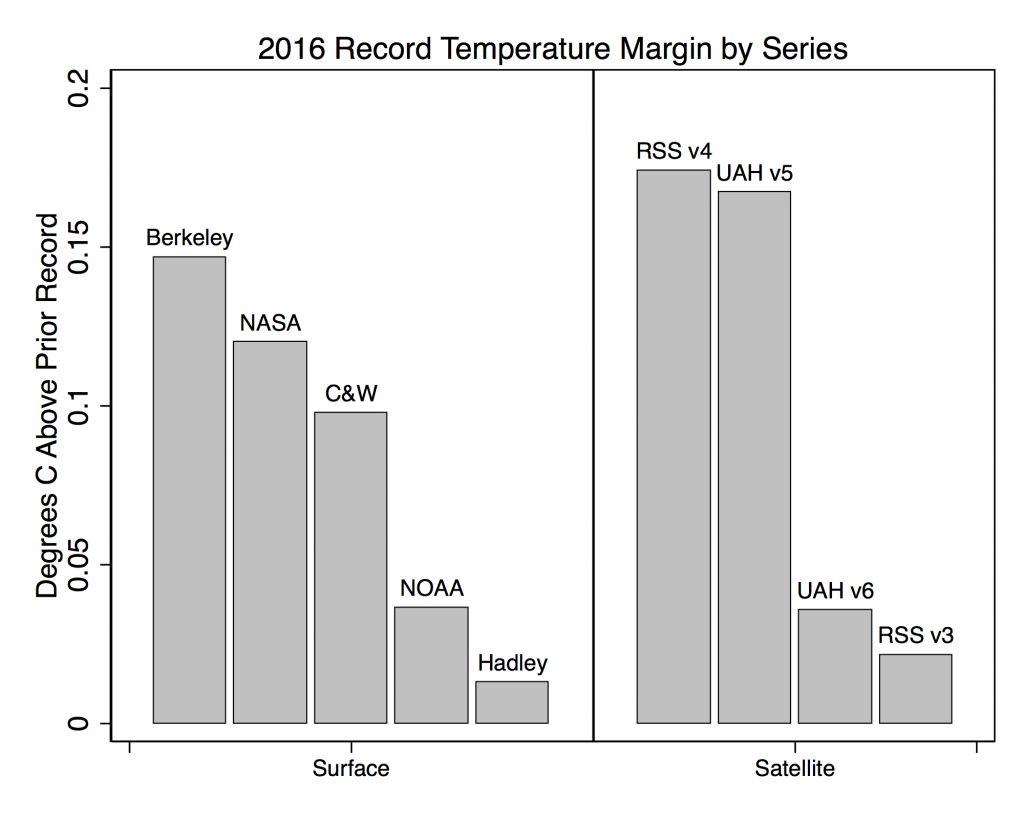- Climate
The Wall Street Journal fails to acknowledge that 2016 was the warmest year on record
Key takeaway
Global temperature records were set in 2014, 2015 and then again in 2016, which illustrates the trend toward warmer temperatures on which year-to-year fluctuations are superimposed.
Reviewed content

Claim:
no one really knows if last year (2016) was a (global temperature) record
Verdict detail
Cherry-picking: Refers only to the one dataset in which the record was set by the smallest amount, ignoring the data that do not fit the narrative.
Lack of context: Fails to mention that 2016 is a record warm year globally, not just by comparison to 2015, but also by comparison to all the other years since record keeping began.
Full Claim
2016 edged out 2015 by a mere 0.04 degrees Celsius. That’s a fraction of the margin of error. Atmospheric data from satellites detected similarly small warming over previous years. In other words, no one really knows if last year was a record.

Director of Climate and Energy, The Breakthrough Institute
This is selectively reporting only part of the story. While it is true that Hadley, NOAA, UAH(v6 beta), and RSS(v3) only showed a small warming over the previous record (2015 in the surface records, 1998 in the satellite records), the margin in the NASA, Berkeley Earth, Cowtan and Way, UAH(v5.6), and RSS(v4) was highly significant and clear, as shown in the figure below:

In five of the nine datasets we can clearly say it’s a record. In the other four it’s still more likely than not the warmest year on record.

Professor, University of Reading and UK National Centre for Earth Observation
It is correct to state that the amount by which the recorded global temperature of 2016 exceeds that of 2015 (0.04 °C) is within the margin of error (0.15 °C) that NOAA quote (table in [1]). One can correctly state that “no one really knows” in that sense. An alternative statement of the same facts is that there is a better-than-even chance that 2016 was warmer than 2015. Note that while 2016 exceeds 2015 by an amount that is statistically small, years previous to 2015 were significantly cooler. For example, the year of the warm temperature “spike” in 1998 [2] discussed later in the article was recorded as 0.27 °C cooler than 2015, which illustrates the trend to warmer temperatures underlying the year-to-year fluctuations.
- [1] NOAA National Centers for Environmental Information, State of the Climate: Global Analysis for Annual 2016, http://www.ncdc.noaa.gov/sotc/global/201613
- [2] NOAA National Centers for Environmental information, Climate at a Glance: Global Time Series, http://www.ncdc.noaa.gov/cag/

